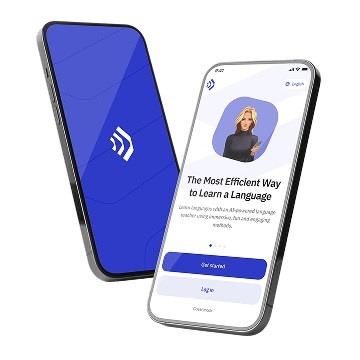Learning English in ‘Ibrī, a quaint town in the Al Dhahirah region of Oman, is becoming increasingly important. As the world becomes more interconnected, English serves as a critical bridge in business, education, and cultural exchange. This linguistic skill not only opens up numerous opportunities for personal growth but also enhances career prospects within and outside Oman.
Economic Opportunities: ‘Ibrī, with its strategic location and rich history, is poised for growth in sectors like tourism, commerce, and education. Proficiency in English allows locals and expatriates alike to tap into broader markets and engage with international partners.
Educational Benefits: Many higher education institutions and professional courses require a strong command of English. By mastering this language, students and professionals in ‘Ibrī can access top-tier educational resources and improve their qualifications for global opportunities.
Cultural Exchange: English acts as a gateway to understanding diverse cultures. For the residents of ‘Ibrī, learning English can enrich their interactions with tourists and expatriates, promoting a vibrant exchange of ideas and traditions.
English Language Learning Options in ‘Ibrī
‘Ibrī offers various avenues for learning English, catering to different age groups and proficiency levels. Whether it’s through formal education, online platforms, or community groups, learners have multiple options at their disposal.
Language Schools and Institutes: Several language schools in ‘Ibrī offer structured English language courses. These institutions provide comprehensive training, focusing on all aspects of the language including speaking, writing, reading, and listening skills.
Online Learning Platforms: With the advancement of technology, online education has become a popular choice. Platforms like Coursera, Udemy, and Duolingo offer courses that can be accessed anytime and anywhere, providing flexibility to learners in ‘Ibrī.
Community Groups and Language Partners: Informal learning through community groups or language exchange partners can be highly effective. These settings allow learners to practice English in real-life scenarios, enhancing their conversational skills and building confidence.
Challenges Faced by Learners in ‘Ibrī
While there are numerous opportunities for learning English in ‘Ibrī, students may face several challenges that can impede their progress.
Limited Exposure to Native Speakers: ‘Ibrī, being a relatively small town, has fewer native English speakers compared to larger cities. This can limit learners’ ability to practice English naturally and fluently.
Resource Availability: Access to high-quality educational resources and experienced teachers can be a constraint. Learners might find it difficult to find advanced level materials or specialized training in certain areas of the English language.
Cultural and Linguistic Differences: The significant differences between Arabic and English in terms of script, pronunciation, and grammar can pose initial hurdles for native Arabic speakers.
Strategies to Enhance English Learning in ‘Ibrī
To effectively overcome the challenges and enhance the English learning experience in ‘Ibrī, certain strategies can be employed.
Integration with Technology: Leveraging technology through language learning apps, online courses, and virtual reality can simulate immersive environments for practice and interaction.
Partnerships with Native Speakers: Establishing sister city relationships or partnering with educational institutions in English-speaking countries can facilitate cultural exchange and language practice.
Customized Learning Approaches: Tailoring the curriculum to meet the specific needs of the learners in ‘Ibrī, focusing on both practical usage and academic proficiency, can increase the effectiveness of English education.
Future Prospects of English Learning in ‘Ibrī
The future of English learning in ‘Ibrī looks promising. As the town continues to develop economically and culturally, the demand for English proficiency is expected to rise. This will likely lead to more innovative learning solutions and enhanced educational infrastructure to support English education.
Government Initiatives: Increased support from the government in terms of funding and policy-making can boost the quality and accessibility of English education in ‘Ibrī.
Community Engagement: Building a community of learners who support and motivate each other can create a sustainable environment for language acquisition.
Globalization: As global interactions increase, the residents of ‘Ibrī will likely recognize the value of English learning, leading to higher enrollment and commitment to mastering the language.
In conclusion, learning English in ‘Ibrī not only equips individuals with essential communication skills but also opens doors to myriad opportunities in the global landscape. By addressing the existing challenges and strategically enhancing learning methodologies, ‘Ibrī can transform into a hub of proficient English speakers, ready to take on the global stage.






